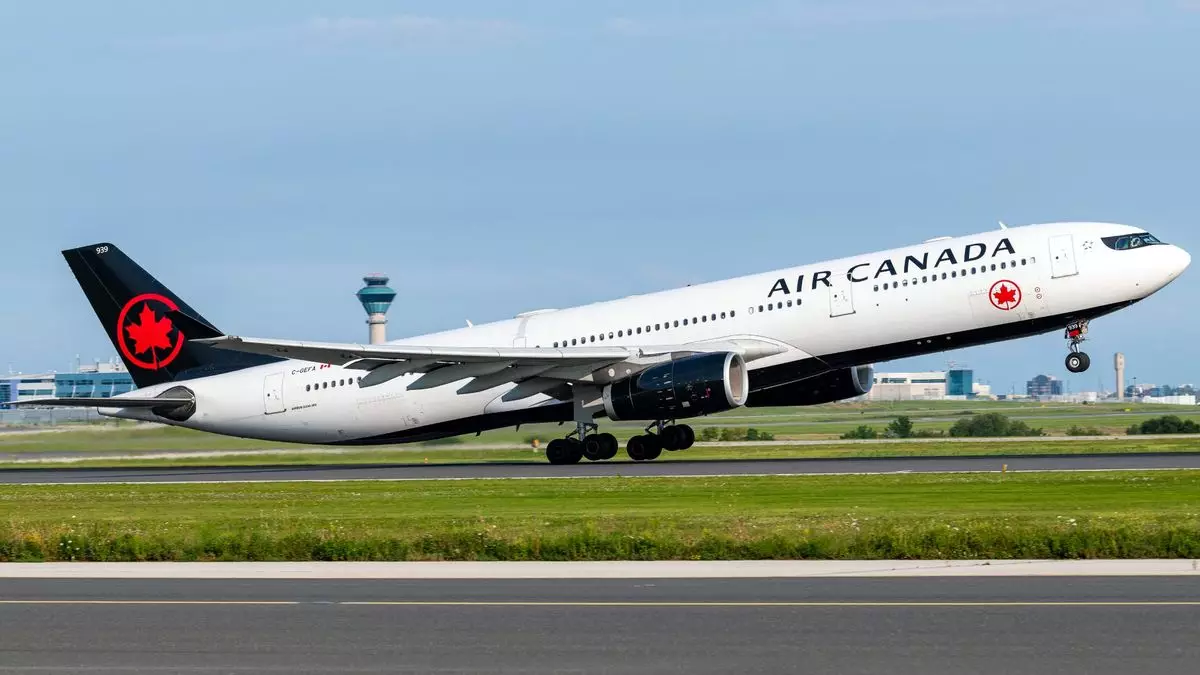Air Canada’s recent labor dispute, which temporarily grounded some of its fleet and disrupted thousands of travelers’ plans, ultimately showcased the resilience and power of collective bargaining. Instead of capitulating to unyielding pressures, the airline and its union demonstrated that negotiation, even under difficult circumstances, can lead to a mutually beneficial outcome. The eventual agreement to end the strike signifies more than just a resolution; it symbolizes a potential turning point in the airline industry’s approach to labor relations and operational stability.
By standing firm against an initial refusal of arbitration and enduring a disruptive strike, Air Canada’s leadership illustrated the importance of strategic patience. The airline’s willingness to collaborate later through mediated talks highlights that even in a high-stakes environment, constructive dialogue is essential. This situation reinforced the notion that airlines need robust and fair labor agreements, but also that their capacity to recover swiftly hinges on their ability to navigate complex negotiations and legal frameworks effectively.
Moreover, the airline’s readiness to implement a phased resumption underscores a critical insight: recovery in aviation is inherently multidimensional. This is not just about getting planes airborne again but also about restoring customer trust, managing operational intricacies, and rebuilding workforce morale. Air Canada’s approach—acknowledging operational delays of up to ten days—demonstrates transparency and an understanding that recovery takes time, a lesson that could redefine industry standards moving forward.
Labor Rights, Government Intervention, and the Future of Fight-Back Strategies
The dispute illuminated palpable tensions around workers’ rights, governmental authority, and corporate responsibilities. The union’s decision to defy a government-ordered return-to-work mandate and reject binding arbitration reveals a deep-rooted desire for control over contractual negotiations and working conditions. This stance is indicative of broader issues within the labor landscape—workers want agency and respect, not merely to be passive pawns in corporate agendas.
Government intervention, via the Canada Industrial Relations Board, brought to the forefront the limitations and complexities of labor law in Canada. The period of legal and political limbo, with the strike declared illegal and union leaders defying orders, exposed how regulatory frameworks can sometimes be at odds with workers’ grassroots movements. Such conflicts often redefine power balances, encouraging unions to adopt more assertive tactics when their bargaining chips are limited.
The union’s proclamation of victory—that unpaid work is finished and their voice has been reclaimed—is a rallying cry for labor movements across sectors. It exemplifies how workers can leverage strategic resistance to shift negotiation dynamics, especially when backed by legal authorities and public support. This event sets a precedent that collective action, coupled with legal resistance, can effectively pressure corporations to revisit contentious issues like fair compensation and working conditions.
Rebuilding Trust and the Road Ahead
For Air Canada, overcoming this strike is more than a logistical challenge; it is a mission to restore confidence. Customers, airlines, and industry stakeholders now scrutinize how well the airline manages the complexities of resuming full operations within a tight timeframe. The airline’s candid communication about potential delays and cancellations reflects an acute awareness of the importance of transparency in rebuilding trust.
This incident should serve as a catalyst for broader industry reflection. Airlines must rethink their labor strategies, prioritize fair negotiations, and develop contingency plans that do not solely rely on political or legal intervention. The importance of investing in employee relations, fostering open dialogue, and ensuring fair pay and working conditions is now more apparent than ever. A resilient airline does not just depend on planes and schedules; it depends on a motivated workforce that feels respected and valued.
Furthermore, the ripple effects of this strike extend beyond Air Canada. Other carriers and industries observing this resolution may reconsider their approaches to labor disputes, emphasizing dialogue over confrontation. The incident proves that even in the volatile world of aviation, strategic patience, legal acumen, and a genuine commitment to fairness can turn a crisis into an opportunity for renewal.
In this context, Air Canada’s eventual return to full operation will be watched closely. The airline’s response and future policies will likely influence labor relations both within Canada and on a global scale, setting standards for balancing corporate needs with workers’ rights. It’s not merely about getting planes off the ground again but about fostering an industry that values both productivity and fairness as mutually reinforcing pillars of sustainability.


Leave a Reply